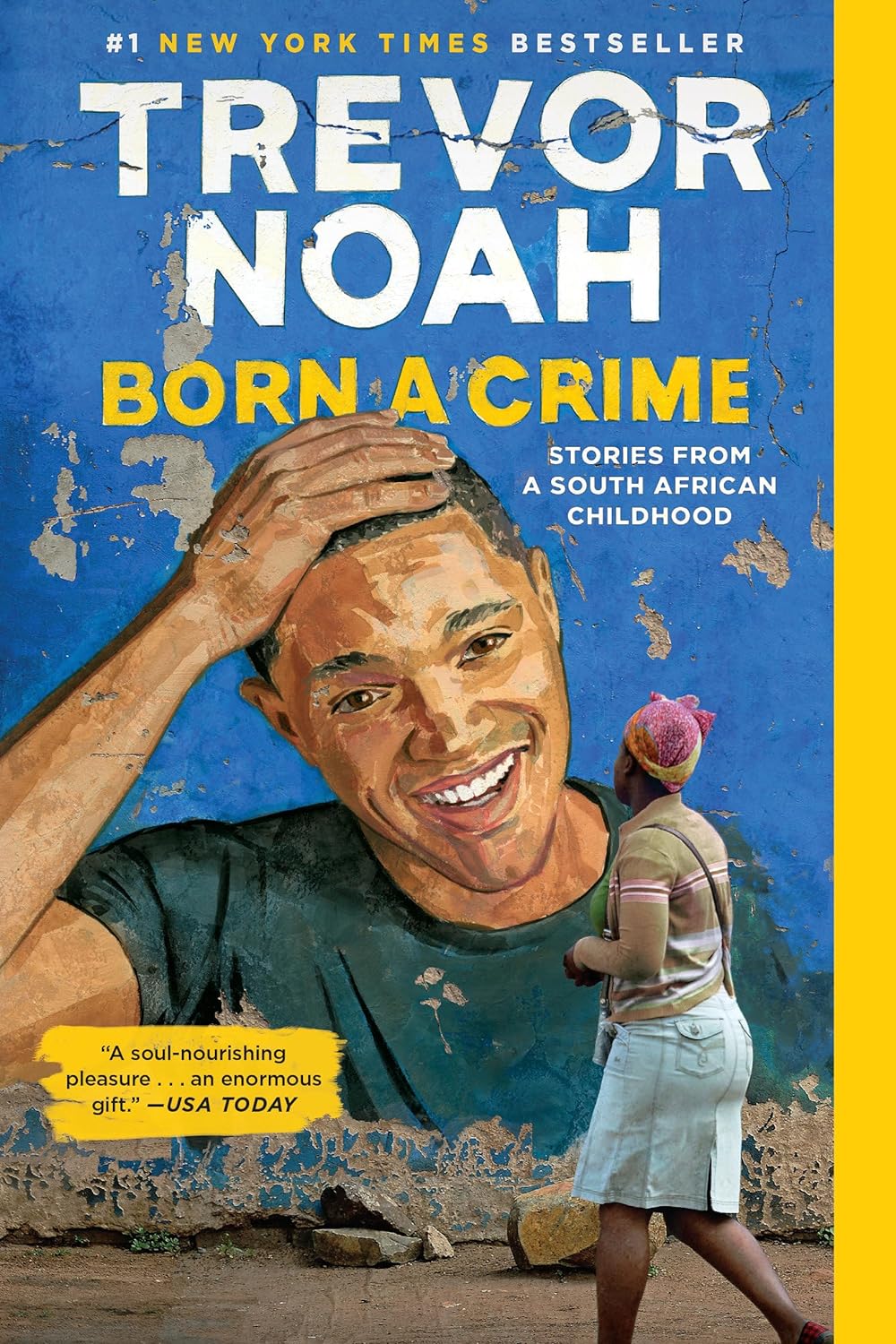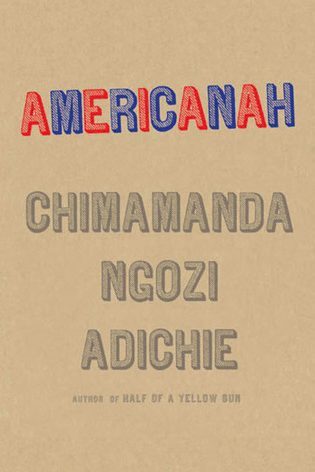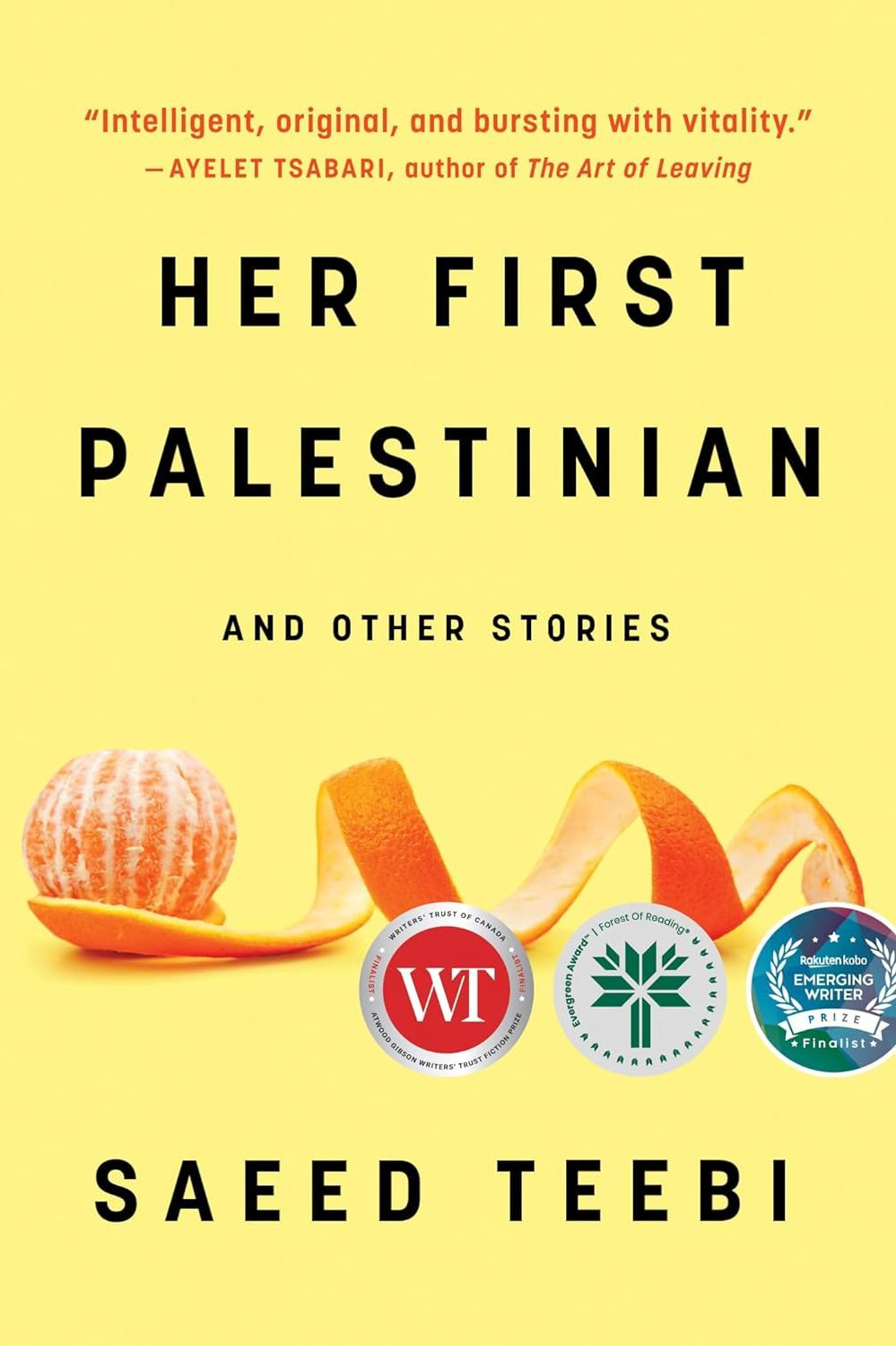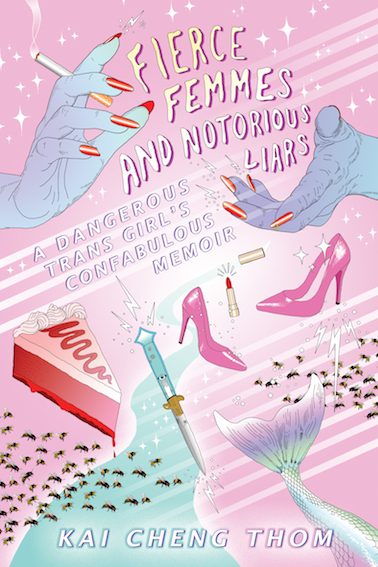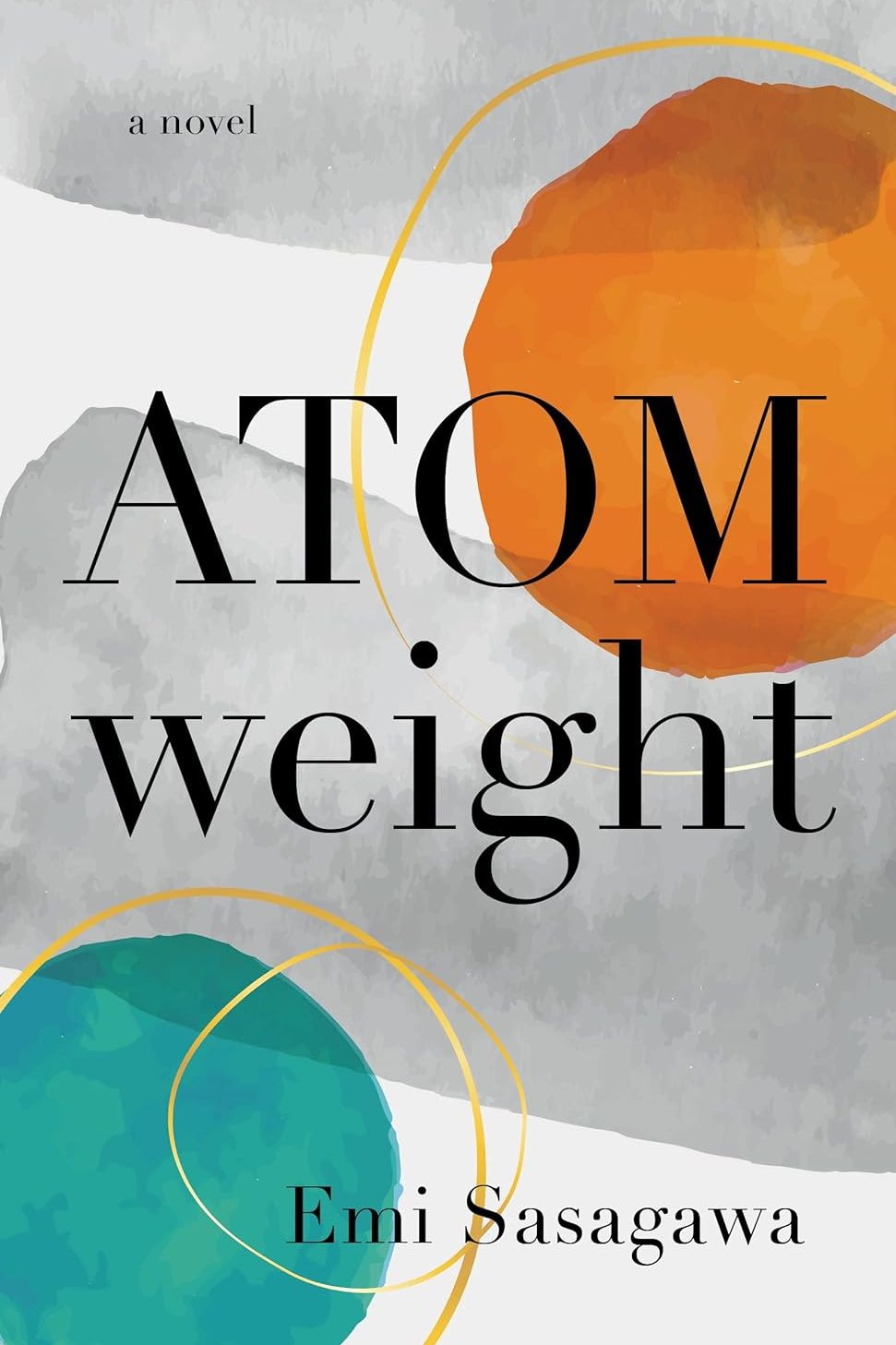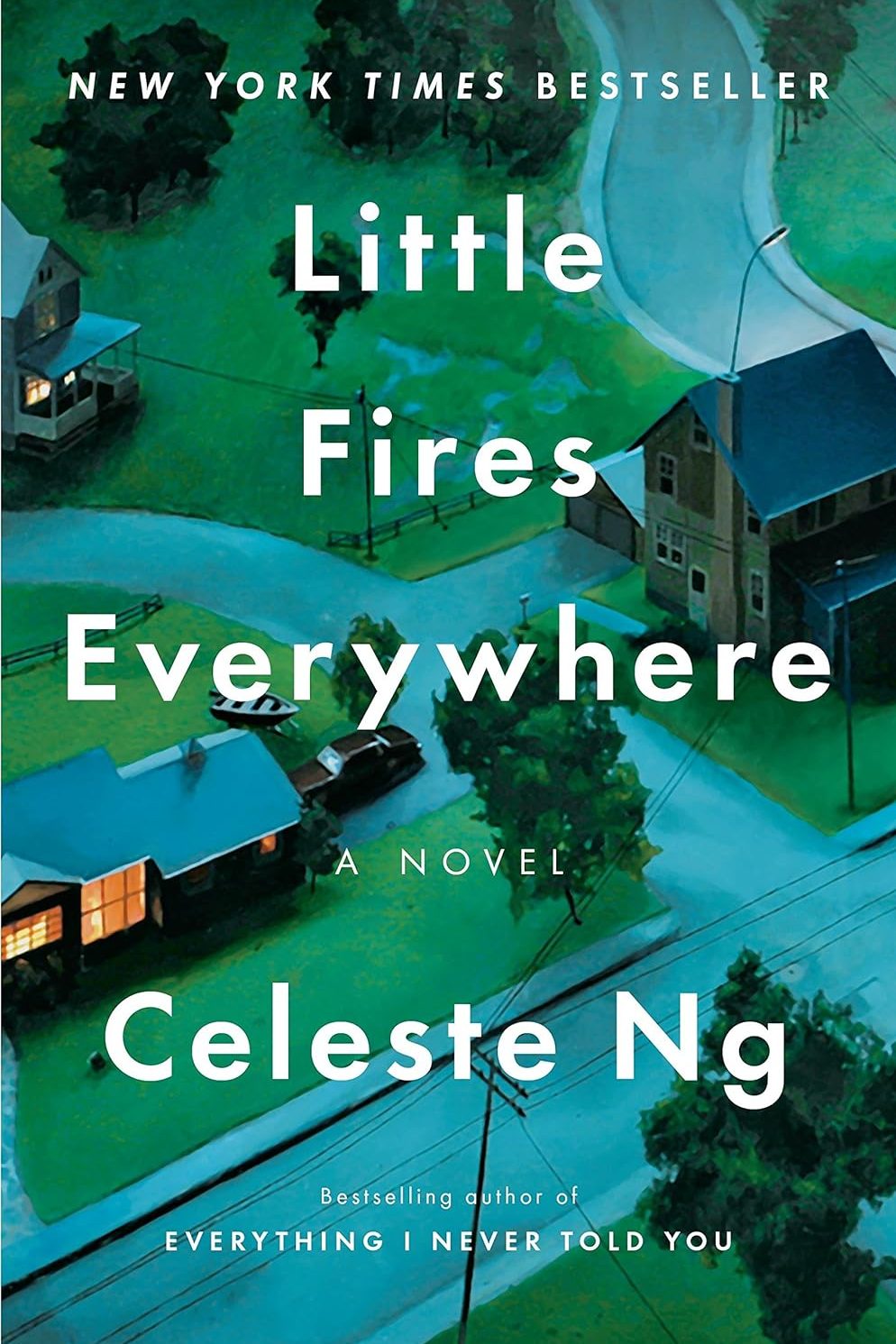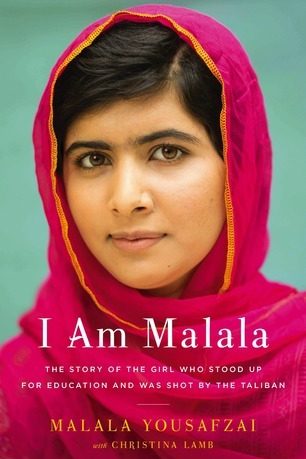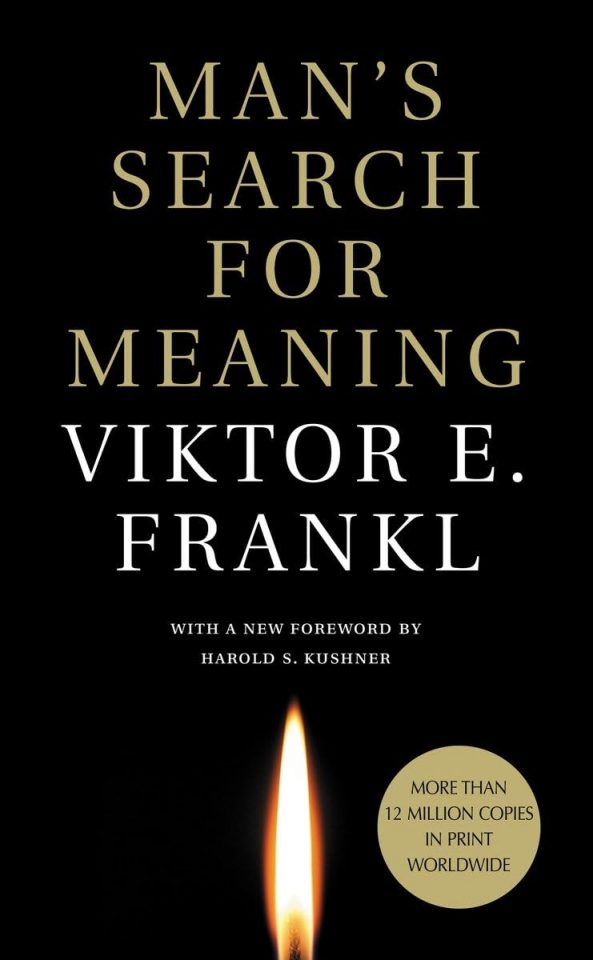Events
World Hijab Day

Contributed by the REDI team in collaboration with Dr. Neila Miled, DEI Manager, PHSA
February 1st marks World Hijab Day, which serves as an opportunity to foster understanding, promote reflection, and celebrate the differentiated experiences of women who choose to wear the hijab. World Hijab Day prompts us to reflect on the challenges visibly Muslim women encounter and work towards creating environments that embrace diversity, eliminate bias, and foster equal opportunities for all. Being visibly Muslim in Canada, by choosing to wear the Hijab, can increase Muslim women’s “vulnerability to hate crimes, discrimination, and employment obstacles” (The Standing Senate Committee on Human Rights, 2023, pp.15-16).
The “hijab” or the “veil” is a symbol of modesty, religious and cultural identity, and personal choice for millions of Muslim women around the world, including Canada. The Muslim veil has been central in the construction of Muslims and central to the heated debate around women’s rights and women’s agency. There is a dominant perception that has framed the hijab as a sign of oppression and confined visibly Muslim women into a homogenous portrayal as oppressed, submissive, powerless, and unable to belong to the Canadian context. This bias is common and has impacted veiled women in medical and health care contexts.
Despite its deeply personal nature, healthcare professionals who choose to wear hijab can face unique challenges that extend beyond the professional sphere, affecting patient-doctor relationships and the learning experiences of future healthcare providers. According to Khan et al. (2022) in their CMAJ commentary titled “Dismantling Gendered Islamophobia in Medicine”:
Visibly identifiable Muslim women in health care are often seen only in the light of a monolithic religious identity, while their intersectional identities — including their unique religious, ethnic and racial identities — are dismissed or erased… Discrimination also reduces the likelihood of job satisfaction, leading to providers who wear the hijab leaving their chosen field or not pursuing a career in medicine at all.9 (p. E748)
Some of the challenges faced by Muslim health professionals wearing the hijab can include:
1. Microaggressions and Stereotyping: Muslim health care providers who wear the hijab may encounter microaggressions and stereotyping, perpetuating harmful assumptions about their abilities, qualifications, and dedication to their profession.
2. Limited Professional Opportunities and Exclusion: Some Muslim doctors may face challenges in career advancement, promotions, or job opportunities due to bias related to their religious attire.
3. Patient Misunderstanding: Patients may harbor misconceptions or biases about doctors who wear hijab, impacting the doctor-patient relationship and hindering effective communication.
On February 1st, we hope you will take a moment to reflect on the challenges women encounter in healthcare settings and consider the role you can play in creating environments that embrace diversity. Your continued efforts to establish inclusive and respectful atmospheres can support individuals of different faiths and cultural backgrounds in bringing their authentic selves to the learning and work environments.
References
Standing Senate Committee on Human Rights. (2023). Islamophobia and its impact on Canadians in Canada.
Khan, S., Eldoma, M., Malick, A., Najeeb, U., & Furqan, Z. (2022). Dismantling gendered Islamophobia in medicine. Canadian Medical Association Journal, 194(21), E748-E750. https://doi.org/10.1503/cmaj.220445
Patrick, K. (2021). Apology from CMAJ’s interim editor-in-chief on behalf of the CMAJ. Canadian Medical Association Journal, 193(51), E1935. https://doi.org/10.1503/cmaj.81033
Learn More
Dismantling gendered Islamophobia in medicine
Letter to the UBC Community: Islamophobia, racism, hate, and discrimination are not tolerated here
New Year, New You: REDI’s New Year Book List
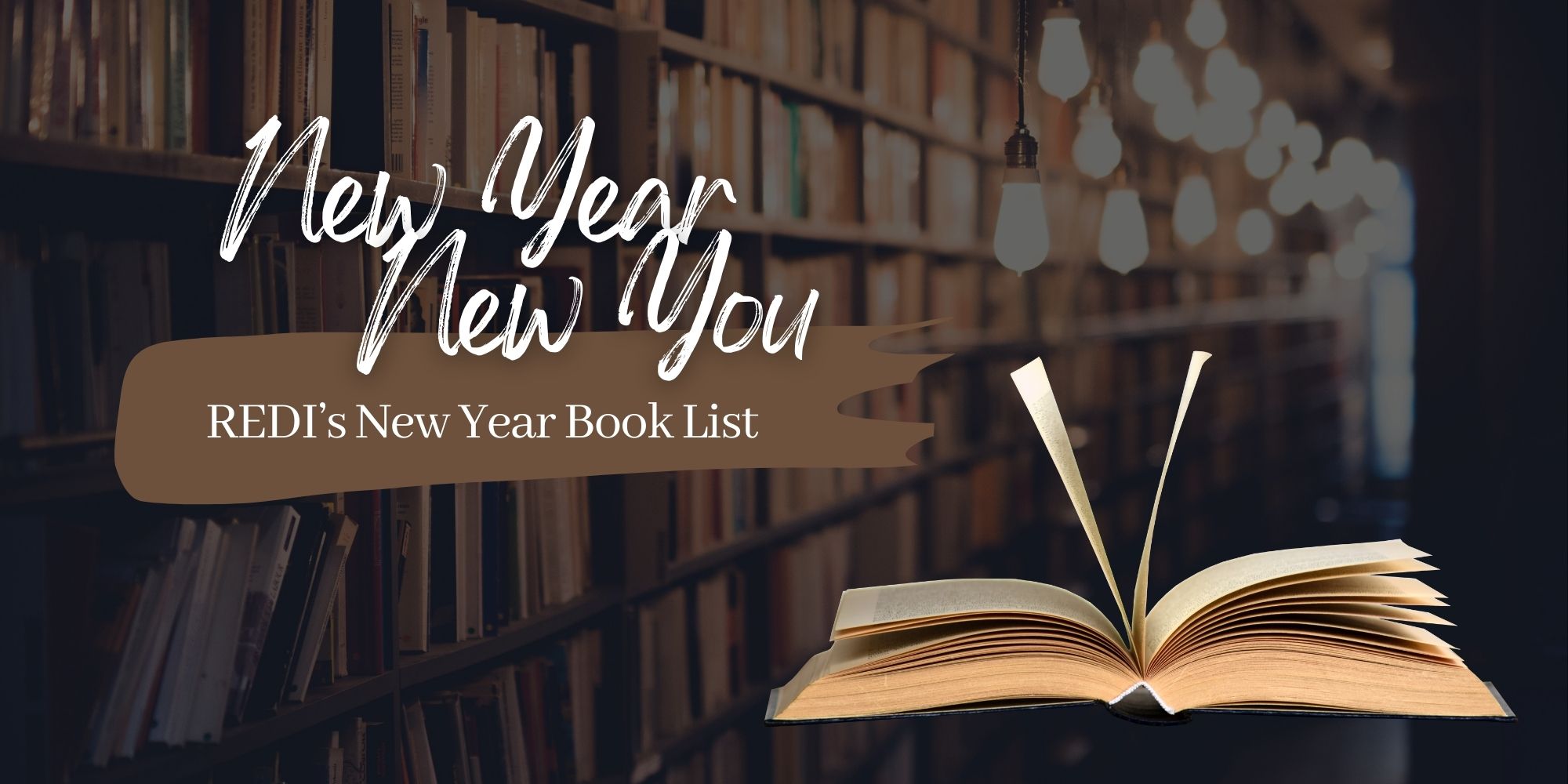
Explore a compilation of books that have deeply inspired the REDI team in their work. Immersing yourself in the stories, lived experiences, and perspectives of individuals from various historically marginalized groups can foster empathy, understanding, and even aid in mitigating bias in your teaching and clinical practice.
Restorative Justice and Transformative Justice
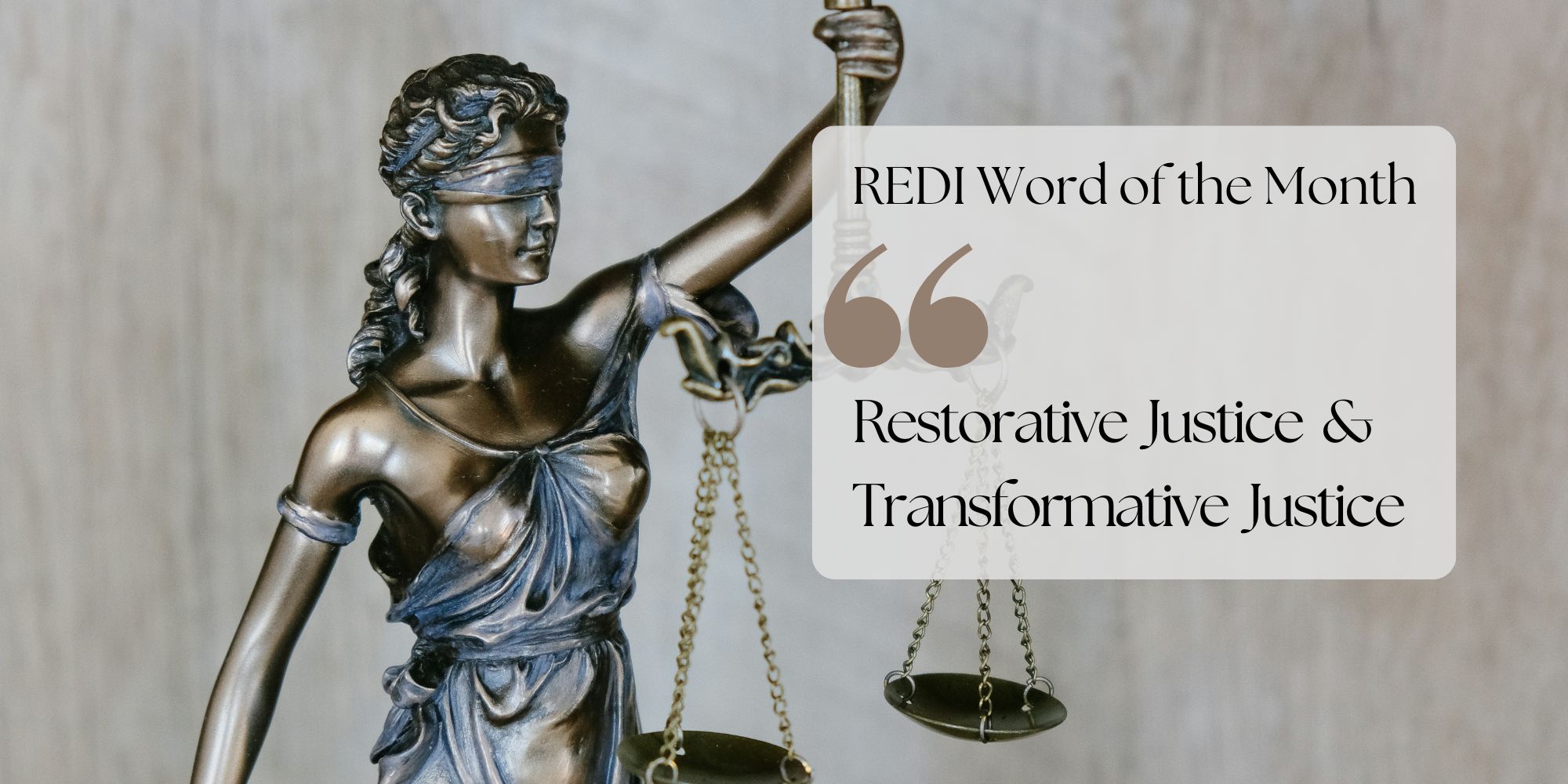
Restorative and transformative justice approaches are most commonly applied in criminal justice reform, but they have also been applied to academic and healthcare institutions to help units navigate how to address differences, disagreements, conflicts, and harm.
Restorative justice (RJ) is a participatory, community-based approach to preventing and addressing harm, affirming the role of relational well-being in health and safety. RJ is an approach to justice that gives voice and agency to those most affected and centers the dignity of all people involved to acknowledge and address harms, identify resulting needs, and help rebuild relationships and trust for impacted parties and communities. RJ asks: Who has been hurt? What are their needs? How and by whom can these needs be met?
Transformative justice (TJ) builds off of RJ but explicitly goes beyond the interpersonal to address the broader systems that contributed to harm. TJ adds the questions: What socio-political, economic, and cultural context caused or promoted the harmful behavior? What broader contextual conditions need to be transformed to prevent future occurrences?
Learn more about restorative justice and transformative justice in higher education.
Karp, D. R., & Armour, M. (2019). The little book of restorative justicefor colleges and universities: Repairing harm and rebuilding trust in response to student misconduct. Good Books.
International Holocaust Remembrance Day
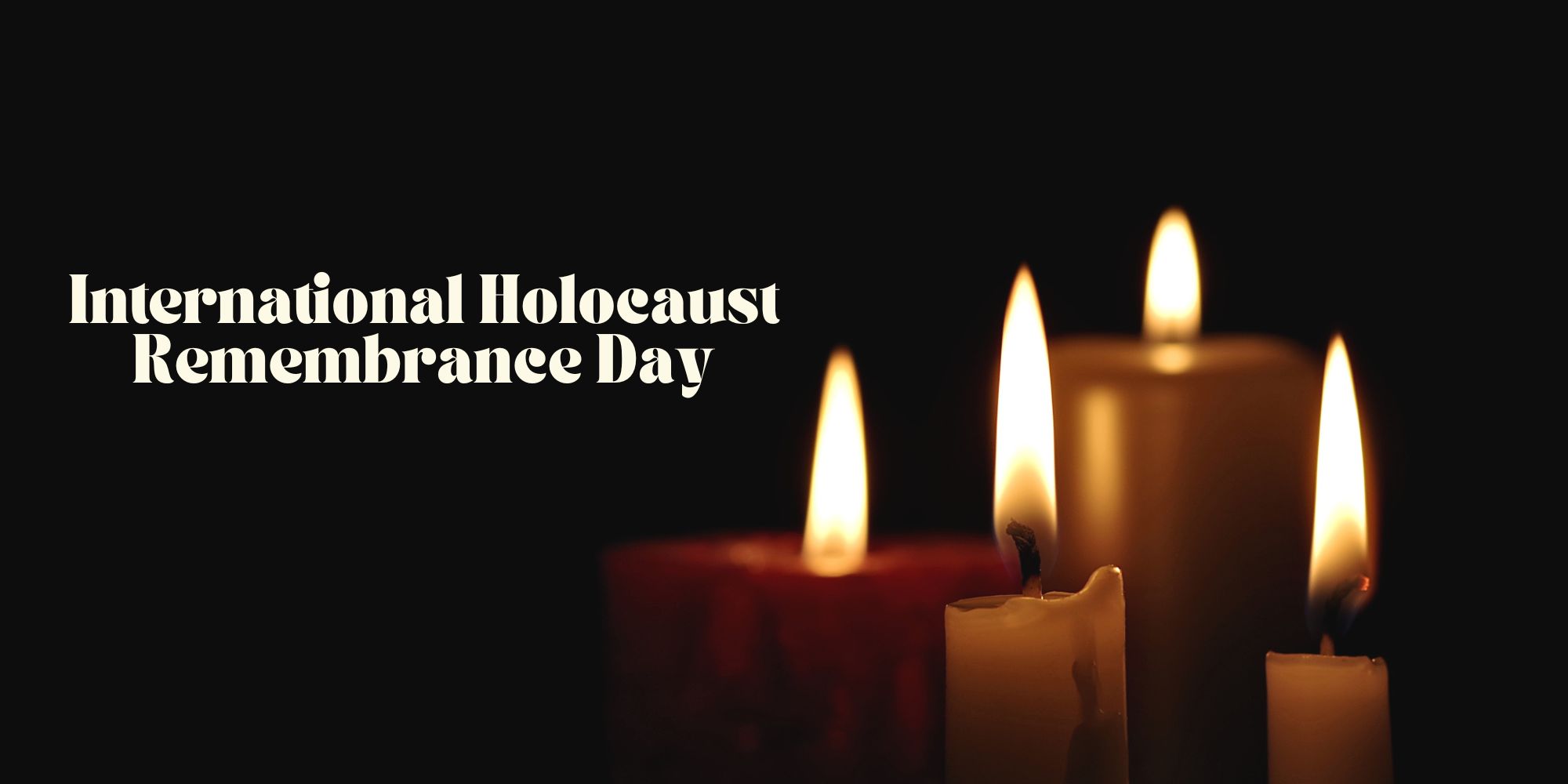
“Without memory there is no culture. Without memory there would be no civilization, no society, no future.”
Elie Wiesel
In 2005 the United Nations General Assembly designated January 27th to mark the anniversary of the liberation of Auschwitz-Birkenau, the Nazi’s largest and deadliest concentration camp. It is a day to honour the 6 million Jews who were systematically murdered by the Nazis. We remember and honour other victims: 250,000 people with disabilities, 200,000 Roma people, thousands of gay, lesbian, and gender diverse people, Jehovah’s Witnesses, Black people and political opponents. It is a time to remember and reflect upon the lessons of the Nazi genocide of Jews and the impact on future generations. The UN urged all member states to adopt this day of commemoration and to develop educational programs to help prevent future genocides.
“We must also go beyond remembrance, and make sure that new generations know this history. We must apply the lessons of the Holocaust to today’s world. And we must do our utmost so that all peoples may enjoy the protection and rights for which the United Nations stands.”
Message by Secretary-General Ban Ki-Moon for the second observance of the Holocaust Victims Memorial Day on 19 January 2008
The Holocaust and its attempt to exterminate European Jewry cannot be relegated to the past. The lessons of the Holocaust reverberate across time and are a prism through which we may find guidance in dealing with the persistence of hatred, prejudice, antisemitism and other forms of racism and discrimination evidenced in the ongoing engagement in dehumanizing discourse.
The consequences of the Holocaust are not in the past. They are with us today. “Never Forget, Never Again,” the post-Holocaust rallying cry expressing optimism that the lessons of the Holocaust would eradicate genocide is at risk of becoming an empty sentiment as the world continues to bear witness to genocides: Cambodia, Rwanda, Bosnia. Sadly, the list goes on.
Join us today as we echo the words of then President of the United States Barack Obama spoken in an address to mark Holocaust Remembrance Day in 2011:
“We are reminded to remain ever-vigilant against the possibility of genocide, and to ensure that Never Again is not just a phrase but a principled cause” … “And we resolve to stand up against prejudice, stereotyping, and violence – including the scourge of anti-Semitism – around the globe.”
“Never forget” means not only remembering what happened. To avoid the mistakes of the past we must support Holocaust education to promote social justice, human rights and genocide awareness. Remembering provokes reflection and insight into the dangers of remaining silent, apathetic and indifferent to the oppression of others.
Learn More
- Read The Lancet Commission on medicine, Nazism, and the Holocaust: historical evidence, implications for today, teaching for tomorrow. Click here to read.
- Register for the Association of American Medical Colleges (AAMC) webinar “An Educational Roadmap from The Lancet Commission on medicine, Nazism, and the Holocaust” taking place on Thursday, January 25th at 9 am PST.
The AAMC will host its third annual virtual event in observance of International Holocaust Day of Remembrance. Members of The Lancet Commission will provide an overview of the Commission on medicine, Nazism, and the Holocaust: historical evidence, implications for today, teaching for tomorrow and its recommendations for educators as well as a look at some new educational initiatives on this topic. This is a free and open event. Click here to register. - Watch the 2023 “It Starts With Us: Contextualizing and Educating about the Holocaust.”
This powerful webinar was developed in partnership with the Vancouver Holocaust Education Centre as part of the It Starts with Us series through the Faculty of Medicine’s Office of Respectful Environments, Equity, Diversity and Inclusion. Click here to watch.
The Circle Game: Shadows and Substance in the Indian Residential School Experience in Canada
Thank you for joining us on Wednesday, January 17th, 2024 from 12:00 pm – 1:30 pm (PST), for “The Circle Game: Shadows and Substance in the Indian Residential School Experience in Canada.” In this Indigenous Speakers Series session, we had a conversation with Dr. Roland D. Chrisjohn – Kanakalut, Onyota’a:ka of the Haudenausuanee. He is the author of “The Circle Game: Shadows and Substance in the Indian Residential School Experience in Canada” and “Dying to Please You: Indigenous Suicide in Contemporary Canada.” In this important conversation, we explored preconceived sensibilities about Indigenous peoples, and how we could begin to heal the very systems in which the work of truth and reconciliation is being done.
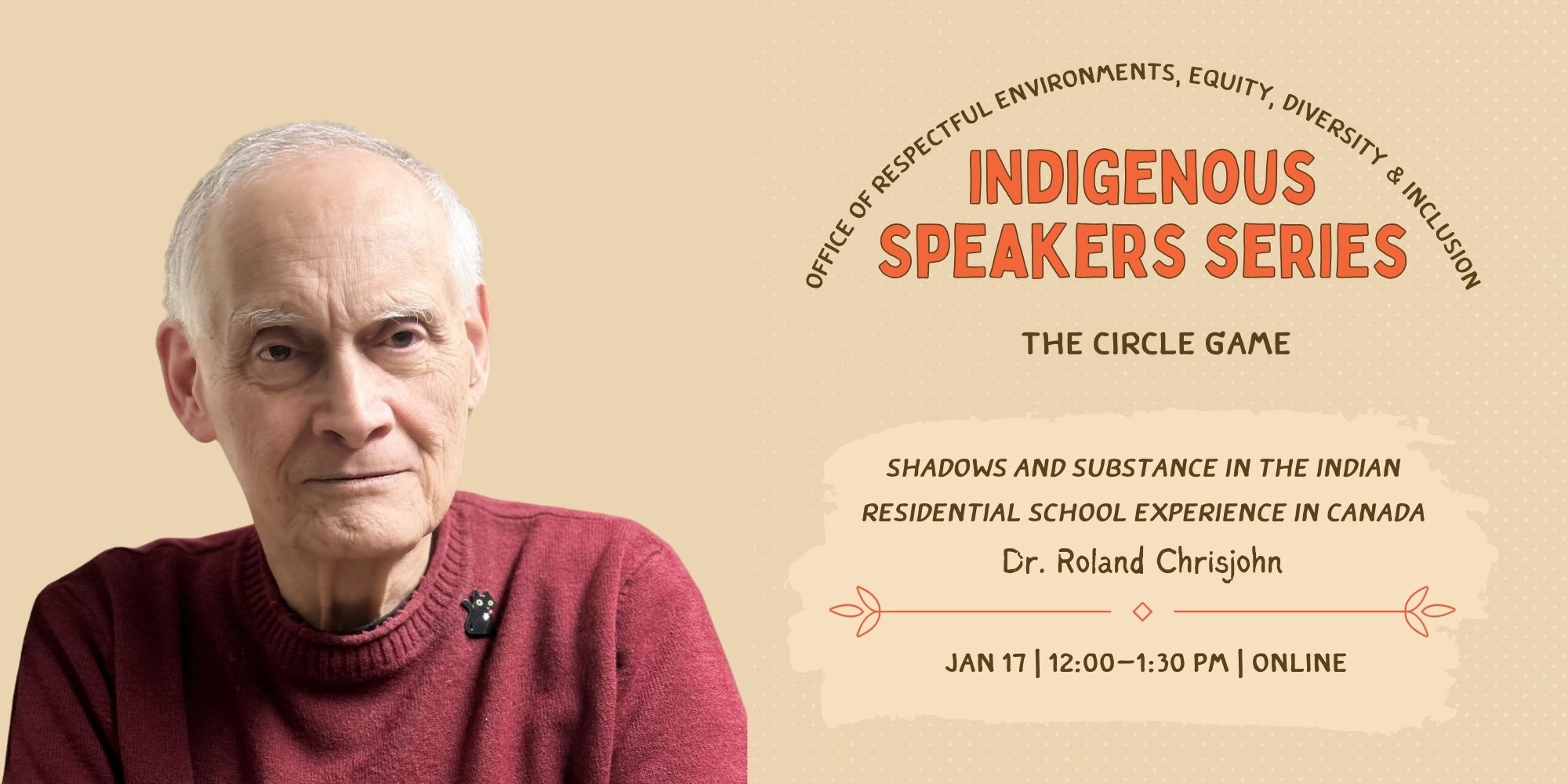
Join us virtually on Wednesday, January 17th, 2024 from 12:00 pm – 1:30 pm (PST), for “The Circle Game: Shadows and Substance in the Indian Residential School Experience in Canada.” This virtual event is presented by the Indigenous Speakers Series.
Speaker Bio

Dr. Roland D. Chrisjohn – Kanakalut, Onyota’a:ka of the Haudenausuanee;
Associate Professor of Native Studies – St. Thomas University;
Author – The Circle Game: Shadows and Substance in the Indian Residential School Experience in Canada;
Author – Dying to Please You: Indigenous Suicide in Contemporary Canada
Dr. Roland David Chrisjohn – Kanakalut was born in Detroit, Michigan, in 1948, and is a member of the Turtle Clan, League of the Haudenausaunee, Onyota’a:ka Nation (Oneida of the Thames, southern Ontario). As one of the eight founding members of A.I.M. in Canada in 1972, he holds Bachelor’s Degrees in Psychology and English Literature from Central Michigan University (1970). Furthering his education, he earned an MA in Psychology with a focus on Personality, Measurement, and Individual Differences from the University of Western Ontario in 1977, followed by a Ph.D. in the same field in 1981.
Certified as a Clinical Psychologist in 1984, Dr. Chrisjohn completed his internship at Toronto East General Hospital, specializing in Crisis Intervention. Throughout his career, he has held academic positions at the University of Western Ontario, University of Guelph, University of British Columbia, University of Calgary, and St. Thomas University (Fredericton). His expertise spans research methodology, psychometric theory, multivariate analysis, clinical psychology, crisis intervention counseling, abnormal psychology, personality psychology, analytic philosophy, historical materialism, genocide, population genetics, and Native/Canadian relations.
Specializing in research methodology, psychometric theory, multivariate analysis, clinical psychology, crisis intervention counseling, abnormal psychology, personality psychology, analytic philosophy, historical materialism, genocide, population genetics, and Native/Canadian relations.
In his clinical work, Dr. Chrisjohn has worked for Toronto East General Hospital in the Native Crisis Team unit, and consulted with the Native Women’s Centre in Toronto, Child & Family Services at Six Nations Reserve in Ontario, and Binojinuk Endahjik in Owen Sound, Ontario. Engaging in community work, he has been involved in health care initiatives at Oneida of the Thames, Ontario; education research & planning at Kainai Nation, Alberta; addressing residential schooling at Cariboo Tribal Council, British Columbia; contributing to health care research with the National Longitudinal Health Survey, Panel 1, Alberta; addressing alcohol/drug use at Six Nations Reserve, Ontario; and participating in health care initiatives with Native People with Disabilities in British Columbia and Native Children and Special Needs at AFN, Ottawa, Ontario.
A prolific author, Dr. Chrisjohn has penned groundbreaking works including The Circle Game: Shadows and Substance in the Indian Residential School Experience in Canada (1994/1997) and Dying to Please You: Indigenous Suicide in Contemporary Canada (2014/2017). He is currently working on the forthcoming book, ” . . . and Indians, too!”: Native Peoples and the Canadian Form of Racism, excerpts of which are available on academia.edu, along with many of the other papers he has authored or co-authored.
Married for 46 years with no children, Dr. Chrisjohn resides in Lower Jemseg, New Brunswick, with his wife and cats. His hobbies include organic gardening, jogging, chess, and assisting his wife in running the local community book cooperative.
Moderator

Derek K Thompson – Thlaapkiituup, Director, Indigenous Engagement
Description
Written by Derek K Thompson – Thlaapkiituup
It wasn’t long after the release of the Royal Commission on Aboriginal Peoples Final Report (1996) when I first read The Circle Game, and I remember I was thunderstruck in a way that was equally profound and life-changing. I was struck by two things: (1) at the beginning of the book a question was proposed – What if the Holocaust had never stopped? And (2) for the first time I began to question, really question, how sick were, and are, the people who created the institutions called Indian Residential Schools, and what are they doing about their sickness?
What if the Holocaust had never stopped? Then, you would have Canada’s treatment of the North American Aboriginal population in general, and the Indian Residential School Experience in particular.
I was around when the Aboriginal Healing Foundation was first created, and there was an overwhelming acceptance amongst Indigenous and non-Indigenous circles that we were the problem, that we are the problem, that we are an affliction of all things defined by a set of symptoms that degraded us to a set of prescriptive healing initiatives called the Indian Residential School Syndrome. I was hypnotized into a dizzying array of self-healing programs without ever questioning – So, if I’m First Nations, if I’m a child of a survivor of the Indian Residential School experience in Canada, if I’m an Indian, then yes, there’s definitely something wrong with me and I need to heal myself. For the first time I questioned, if I’m an Indian and I’m sick and I need to heal myself, yes, sure, but, this begs an equal question – How sick were, and are, the people that set up the places called Indian Residential Schools, and what are they doing about their sickness?
This important and timely conversation with Dr. Chrisjohn will consider how far we’ve come, and how far we have to go, in being accountable for our individual and collective part in coming to terms with the historic past, working out the complexities of telling the truth and reconciling for the present, and creating a proper redress for the future for all Indigenous – First Nations, Inuit, Métis – peoples in Canada. This dialogue is essential, necessary and urgent for all of us to consider not only how sick are the attitudes we hold onto about Indigenous peoples, but how we can begin to come to terms with ourselves and our preconceived sensibilities about Indigenous peoples, and how we begin to heal the very systems in which the work of truth and reconciliation is being done.
Topic: The Circle Game: Shadows and Substance in the Indian Residential School Experience in Canada
Date: Wednesday, January 17th, 2024
Time: 12:00 – 1:30 pm (PST)
What Will I Learn?
You will learn about a unique Indigenous perspective of ideology about the context of the Indian Residential School experience in Canada.

Continue Learning
“The time to make things happen is now. The time to seek out our individual and shared power is now.”
Learn more about REDI’s Indigenous Initiatives here
Discover more about REDI’s Indigenous Initiatives Speakers Series here
Find REDI’s Indigenous-Specific Resources here
